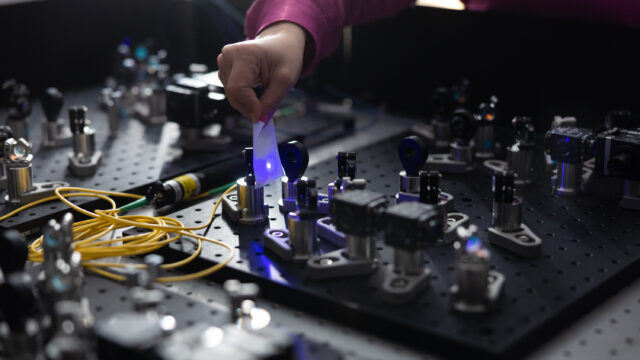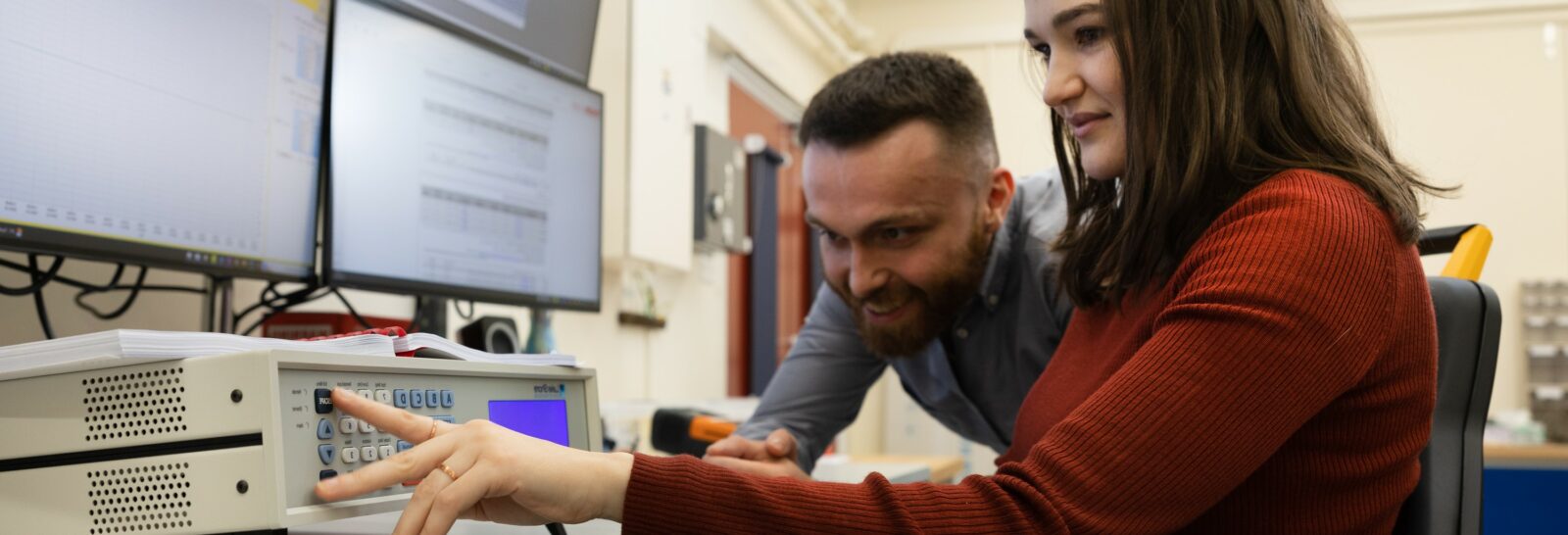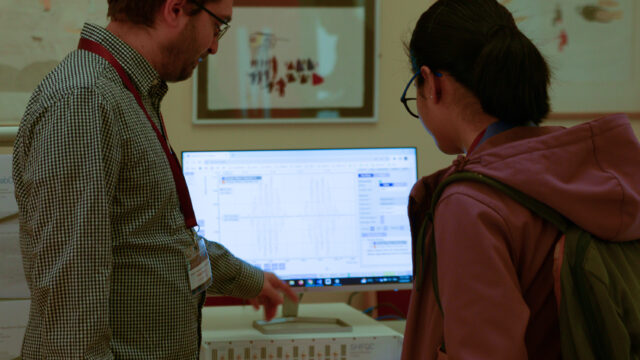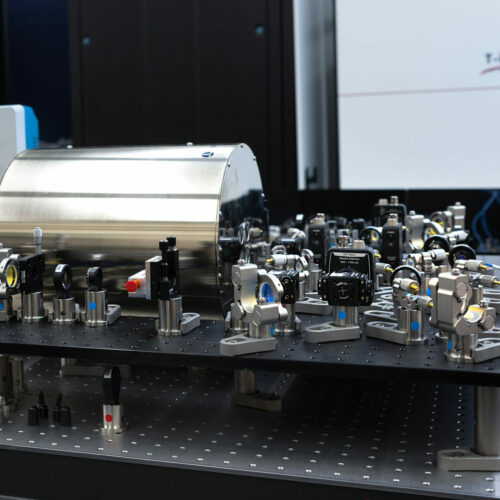
Quantum computing hardware
Our hardware teams are currently working on the development of a range of platform technologies including ion traps, superconducting circuits and cold atoms.
The NQCC’s research teams are working with partners in industry and academia to develop scalable quantum computing platforms and explore practical applications for quantum computers.

The work of our technical teams spans the full quantum computing stack, from the native hardware through to applications development. Our technology roadmap has a near-term focus on hardware architectures based on ion trap and superconducting qubits. We are actively collaborating with the research community to extend the range of platform technologies that we work on over time.
Our current technology programme is focused on establishing quantum computing testbeds. This will allow us to evaluate component technologies, understand system-level performance, and overcome the key engineering challenges involved in scaling quantum computing.

Our hardware teams are currently working on the development of a range of platform technologies including ion traps, superconducting circuits and cold atoms.

Our software team is developing control systems, middleware and user interfaces for integration across a range of hardware platforms and with third-party software solutions.

Our applications team works to develop and test use cases for quantum computing, by programming quantum processors and simulators to run quantum algorithms.
Trapped ions can be employed as qubits using two electronic states of the charged atom, sufficiently isolated from their environment. Their long-lived quantum states make it possible to create high-quality qubits that perform accurate logical operations. With the potential for large numbers of identical qubits and all-to-all connectivity between them, trapped ions continue to be a topic of high interest both internationally, and within the UK.
The trapped ion quantum computing team aims to further the UK’s ecosystem through technology development and collaboration with academic and industry partners.
Internal projects are focused on technological progress including building modular systems, high-fidelity gate control, and scaling. Having fitted out the organisation’s first optics lab, current work is concentrated on the design, development, and assembly of a first ion trap system, using a surface trap geometry. This will enable us to explore high-fidelity, high-speed microwave gates and test the modularised sections of the full system.
As new facilities come online and the organisation grows, we aim to diversify the inhouse experiments, building our expertise and capabilities such that we can support both the academic and commercial industries.
We have a number of external projects focussed on enabling technologies and supply chain development such as testing and validating trap types, miniaturisation of ion trap packaging, and remote entanglement.

Superconducting circuits are one of the most mature qubit architectures, since they support long-lived quantum states, which can be engineered using established nanofabrication techniques, and can easily be connected together to create multi-qubit systems.
Initial work at the NQCC is focussing on simulation and design to develop an in-house architecture that offers both stability and scalability. As the team grows, dilution fridges and qubit control equipment will be set up in a purpose-built labs and interfaced with the work of the NQCC’s software and applications teams. The first experiments will involve building small-scale processors and testing the scaling to larger devices.
In parallel, collaborative research projects with academic and industry partners will address fundamental challenges to scaling and improving performance such as two-qubit gate errors and inter-chip connectivity. Our facilities will also enable us to characterise and benchmark a range of superconducting quantum processors from the emerging commercial landscape.

The software and control systems group maintains and develops software, ranging from hardware control through to providing quantum programming environments for our application engineers.
Our current focus is on building real-time quantum computer control for the onsite hardware teams, from data collection and monitoring to qubit control, and on establishing quantum emulation on the in-house high performance compute (HPC) cluster.
Our core software provides a flexible architecture that allows components to be selected at runtime to form application-specific toolchains. We bring together a wide range of technologies, including cross-platform user interfaces and extension points to integrate with third-party tools and web-based quantum systems.
Our agile process encourages hands-on experience across the full quantum stack, including hybrid quantum-classical algorithms and the transpilation and optimisation of quantum programming languages.

The quantum applications team provides technical expertise and support to help identify, test and validate quantum computing use cases across various industry sectors. Our applications engineers work with innovation specialists to translate challenges within specific industries into technical requirements, which then guide their development of applications solutions. They are also involved in collaborative R&D projects with external partners through the NQCC’s user engagement programme, SparQ.
Our applications engineers also work with the software and control systems team to define and develop the higher layers of the quantum computing stack.
Key areas of activity for the quantum applications team include:
